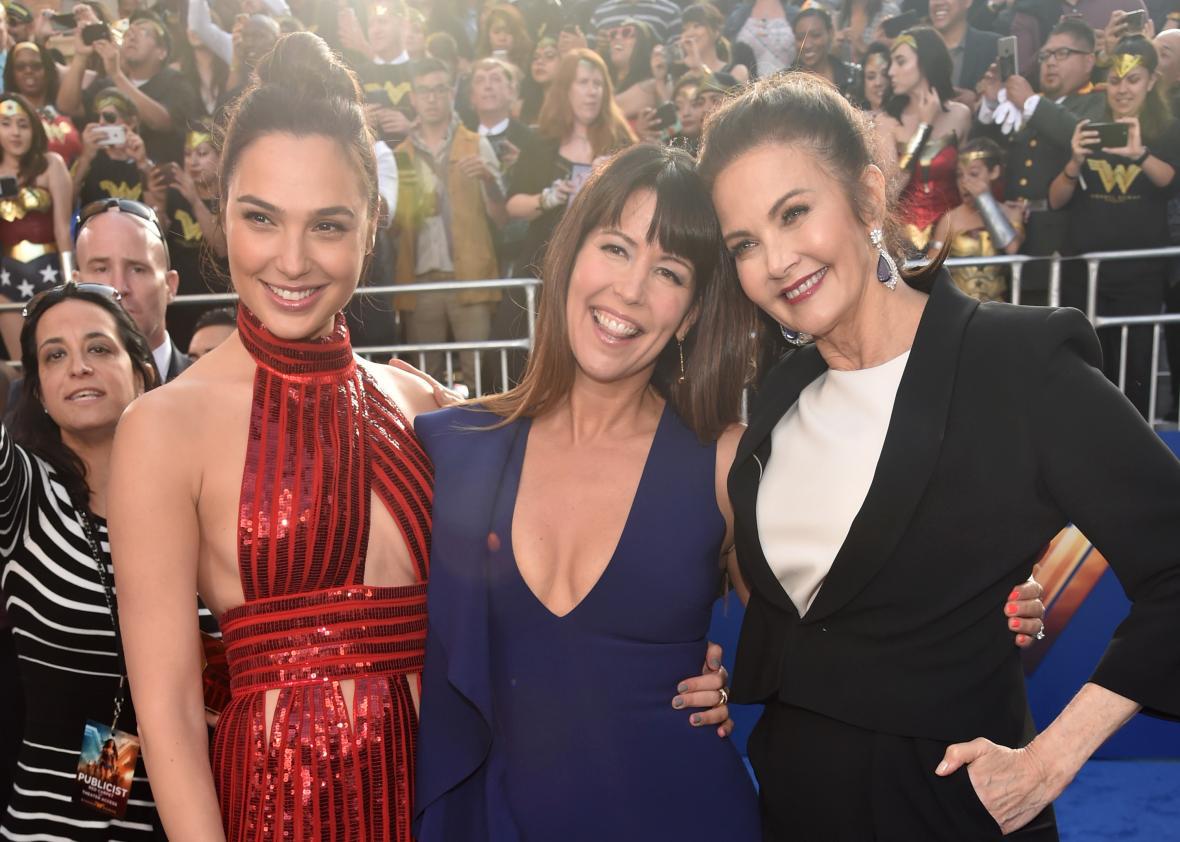James Cameron, director and self-appointed Male Feminist, has some thoughts about female-directed, female-starring, record-smashing Wonder Woman. In an interview with the Guardian on Thursday, Cameron called the first superhero movie directed by a woman a “step backwards” for women.
“All of the self-congratulatory back-patting Hollywood’s been doing over Wonder Woman has been so misguided,” he said. “She’s an objectified icon, and it’s just male Hollywood doing the same old thing! I’m not saying I didn’t like the movie but, to me, it’s a step backwards.”
He then went on to praise his own depictions of women, pointing to Linda Hamilton’s character in the Terminator franchise. “Sarah Connor was not a beauty icon. She was strong, she was troubled, she was a terrible mother, and she earned the respect of the audience through pure grit.” (Cameron would go on to marry Hamilton—one of five marriages—who said she realized she had made a mistake immediately after moving in with him and realizing he was the “controlling director” and she “didn’t have much of a say-so.”)
Wonder Woman director Patty Jenkins hit back at Cameron on Thursday night on Twitter, saying that female characters shouldn’t always have to be “hard, tough, and troubled to be strong.” Cameron, she said, simply doesn’t understand what Wonder Woman means to women because he isn’t one.
Cameron is correct in saying that Wonder Woman is a sexualized figure. Sadly, if Hollywood is going to be making superhero movies from the existing sexist canon, the ability to depict a female superhero who is not conventionally hot is limited. But compared with titles like “Stripperella” (no seriously, this is the only female superhero to receive an animated TV series, and she used weapons like “explosive breast implants” ), Wonder Woman is a huge step forward, a character who is, as Jenkins says, “attractive and loving” as well as brave, fierce, respectable, and incorruptible and has become an example of female strength for little girls worldwide.
By claiming that Wonder Woman’s appearance precludes her from being strong, Cameron is reinforcing the very double standards he is—apparently—so concerned about.
